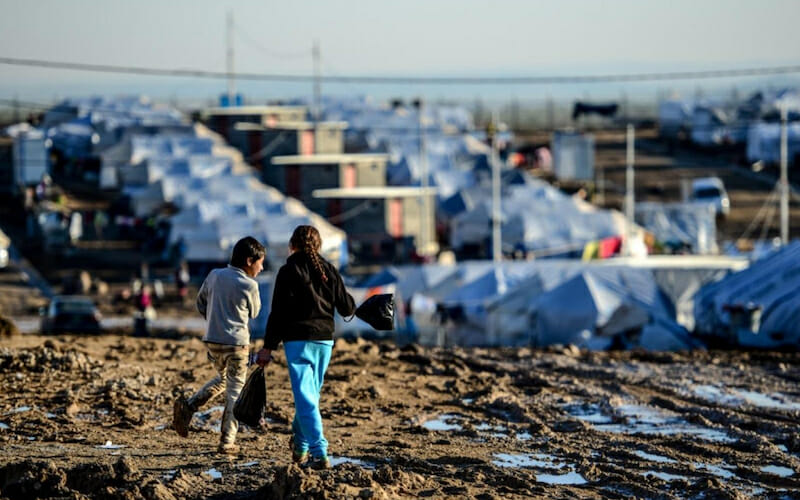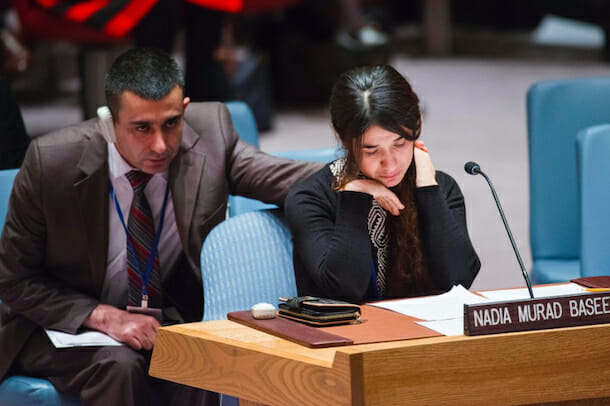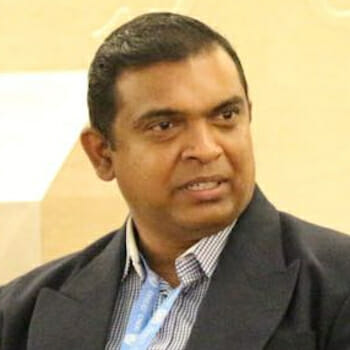
Yazidi Genocide, the Urgent Need for Prosecution
Most perpetrators of genocide, war crimes and crimes against humanity never stand trial for their crimes. Cases brought before national courts are often only known in the country or region where the trial occurred. In some cases the accused persons are prosecuted for international crimes which have been incorporated into domestic law. In other cases the accused are prosecuted for regular domestic offenses, such as murder, because the nation has failed to adequately incorporate international crimes into domestic law even when that nation has ratified the relevant international treaties.
The importance of domestic prosecution of international crimes cannot be underestimated. International tribunals are designed to judge only the most serious cases of international crime. In many instances it may be preferable for a competent national court to decide such a case. Domestic trials of genocide and other international offenses can play a crucial role in establishing a culture of legal justice in the aftermath of such massive crimes.
As someone who comes from a genocide victim community and seeking justice for the 146,679 unaccounted Tamils, I understand the pain and agony of the Yazidis over the past many centuries.
Under Ottoman rule in the 18th and 19th centuries alone, the Yazidis were subject to 72 genocidal massacres. The Yazidis had been denounced as infidels by Al-Qaeda in Iraq, a predecessor of ISIS, which sanctioned their indiscriminate killing.
Since 2014, the UN Office on Genocide Prevention and the Responsibility to Protect have been tracking the executions of Yazidi men and boys as well as the abductions of Yazidi, Christian and Shabak women and girls.
The targeting of women is not only to serve the sexual demands of fighters but also to carry out a calculated policy of ethnic miscegenation by impregnating female captives and thus sullying the ethnicity and culture of their enemies.
Discussions are now taking place in Europe, particularly in Britain, on the possibility of taking the case of Yazidi women to the International Criminal Court, though it was established by treaty in 1998 primarily to bring the masterminds of crimes to justice.
PassBlue writes: “In its final report, the Global Justice Center’s ‘brain trust’ confirmed ‘the importance of laws, and, perhaps more significantly, the special values that it protects: plurality, diversity and tolerance.’ The team of experts, noting the rise of nationalism and prejudice in the world, underlined the importance of upholding those values. It concluded: ‘The ongoing genocide against the Yazidis demonstrates there is a real gap between the strength of legal obligations to prevent, suppress and punish genocide, and compliance with them.’”

The independent international Commission of Inquiry on the Syrian Arab Republic in its report states that, ISIS separated Yazidi men and boys over 12 from the rest of their families, and killed those who refused to convert, in order to destroy their identity as Yazidis. Women and children often witnessed these killings before being forcibly transferred to locations in Iraq, and thereafter to Syria, where the majority of captives remain.
Thousands of women and girls, some as young as nine, have been sold in slave markets, or souk sabaya, in the Syrian governorates of Raqqah, Aleppo, Homs, Hasakah and Dayr Az- Zawr. ISIS and its fighters hold them both in sexual slavery and in slavery, the report says, with Yazidi women and girls being constantly sold, gifted and willed between fighters. One woman, who estimated she had been sold 15 times, told the Commission, “It is hard to remember all those who bought me.”
The Commission further noted that, with no path to international criminal justice available, it is likely that the first such prosecution of ISIS crimes against the Yazidis will take place in a domestic jurisdiction. The Commission urged international recognition of the genocide and stated that more must be done to assure the protection of this religious minority in the Middle East, and the funding of care, including psycho-social and financial support, for victims of this genocide.
ISIS sought – and continues to seek – to destroy the Yazidis in multiple ways, as envisaged by the 1948 Genocide Convention. “ISIS has sought to erase the Yazidis through killings; sexual slavery, enslavement, torture and inhuman and degrading treatment and forcible transfer causing serious bodily and mental harm; the infliction of conditions of life that bring about a slow death; the imposition of measures to prevent Yazidi children from being born, including forced conversion of adults, the separation of Yazidi men and women, and mental trauma; and the transfer of Yazidi children from their own families and placing them with ISIS fighters, thereby cutting them off from beliefs and practices of their own religious community.”
A transitional justice mechanism has to be implemented without any delay. All the four key elements including; Truth-seeking Prosecutions, Reparations, Institutional reforms, and Economic recovery will not be sufficient; people need to reconstruct communities, and re-establish social norms and values which were lost as the result of the 30 years of war.
This justifies the need for rehabilitation as a form of reparation clarified by the UN ‘Basic Principles and Guidelines on the Right to a Remedy and Reparations for Victims’ as taking five forms: restitution, compensation, rehabilitation, satisfaction and guarantees of non-repetition. This should necessarily include psychosocial rehabilitation at the individual, family and community levels.
Significant advances have taken place in recognizing universal human rights, in particular the right to health that is now enshrined in international human rights law, humanitarian law and criminal law.
To conclude, like in all cases of Genocide, transitional justice mechanism aims primarily to establish criminal accountability of perpetrators and to respect the rights of victims to reparation. The United Nations, transitional justice is the full range of processes and mechanisms associated with a society’s attempt to come to terms with a legacy of large-scale past abuses.
The Yazidi victims, of whom more than half a million are displaced or live as refugees are still waiting for accountability, justice and reconciliation, years after the end of genocide. Transitional justice processes and mechanisms are a critical component of the United Nations framework for strengthening the rule of law and the Yazidis should not accept anything less than that.
Genocide should be a thing of the past; our brethren whether in Western Sahara, Baluchistan, Kashmir, Kurdistan, Ambazonia or Tamil Eelam have a right to self-determination, to seek justice and live a life of dignity.

